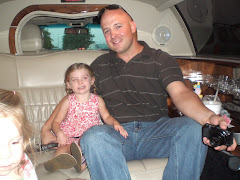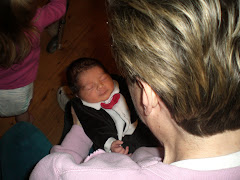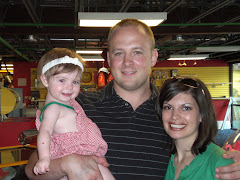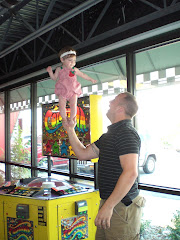I am reading "Creative Correction" by Lisa Whelchel, aka Blair from "The Facts of Life." This is a wonderful, easy read that I encourage you all to get. I am using a piece from her book this month. It was insightful to me as a father and a principal. I am sure you will find it insightful also.
p58-59
"Until our children learn to obey by their own free choice, they will continue to think the objective is to see how much they can get away with without getting caught. That's why it's critical, especially as our children get older, for us to take a two-step approach to parenting: We must teach the heart as well as discipline the flesh. While it's important that our kids learn to follow our instruction, they must also understand the reasons behind our restrictions and standards so that they may choose, by an act of the will, to obey. This is the real heart of obedience."
"Children who grow up in legalistic, strict environments in which the parents never explain the purpose of discipline will often obey just as long as Mom and Dad are watching, then act up the second their parents turn their heads. On the other hand, kids who grow up in homes that lack rules and standards, where the parents are buddies rather than authority figures, often know the right thing to do but don't have the willpower to carry it out."
"It takes time and energy to teach our kids why they're being corrected, rather than simply dole out the punishment. For example, if one of my kids interrupts me while I'm talking on the phone, the most convenient thing for me to do is to send them to their room. This stops the negative behavior and allows me to continue my conversation with only a brief pause in my personal agenda. But it's not the best approach, because all they have learned is that this time they got caught. The next time they have a burning question, they will probably interrupt again."
"I am not saying we shouldn't sen children to their rooms, but discipline alone isn't enough; we must follow up. So after I send a child to their room, I should cut my conversation a little short and then join them upstairs. That way I can explain to them why interrupting is inconsiderate...both to me and to the other person on the line. I can relay that when they interrupt me, they are communicating a selfish message: that what they have to say is more important that what I or anyone else has to say. This gives me the opportunity to talk to them about putting others first."
"Of course, we as parents should be sensitive to our kids, too. Often the question is important! So at our house, we use a wonderful technique, called the "Interrupt Rule," that we learned in a parenting class. Using this technique, our kids will gently rest a hand on my side when they need to get my attention. I'll lay my hand on theirs, acknowledging the request to speak, and then at a logical break in my conversation, I'll excuse myself and briefly turn my attention to my child."
"It takes time to follow up our discipline by explaining the rules and then describing what to do in the future. But it's worth it! We'll be raising children who do the right things for the right reasons."
Wednesday, September 9, 2009
Subscribe to:
Comments (Atom)








